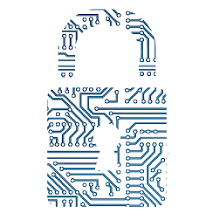A short history of malicious software A short history of malicious software
Hackers, spammers, and infections have been around nearly as long as PCs themselves. As per a few sources, the establishments for it were set in 1949. Yet, real PC infections acquired consideration once PCs came into our families.
Self-imitating programs, intended to adjust PCs or infections got their name during the 1980s when a PC researcher Fred Cohen composed the code for one of the main projects of this sort. Prior to the web, spreading of infections was moderate and relied upon individuals utilizing tainted floppy plates or CDs. However, soon that changed – and with the assistance of the web, infections have gotten a lot quicker and more malevolent.
The motivating factors behind these demonstrations shift. Some were made fully intent on assuming responsibility for a PC and use it for explicit undertakings, other infection makers need to get their hands on your cash or delicate data (Visa numbers, passwords, and so on) and some simply need to demonstrate that it tends to be finished.
Different kinds of computer viruses
The expansive sorts of PC infections and other noxious programming are:
Typical computer viruses
Worms
Trojan horses
In one of our last online journals, we clarified somewhat about the historical backdrop of PC infections and got going a rundown of various kinds of infections. We examined basic PC infections that spread quickly, worms and Trojan ponies. How about we proceed.
Ransomware
We've effectively clarified somewhat about ransomware and how to try not to turn into a casualty of it. It's viewed as perhaps the most ruinous malware, principally in light of the fact that it's acquiring on fame these days because of the simplicity of installments with digital forms of money. It blocks admittance to your records or your whole PC – essentially kidnapping it until you pay a payment expense. The most noticeably awful part? You probably won't get your documents back in spite of paying the expense! A well indeed and ongoing known ransomware model is WannaCry from 2017.
Rootkits
This product will permit other malware to get into your framework – functioning as an indirect access for them. The first was NT-Rootkit in 1999. Since rootkits are particularly subtle and work behind the scenes, you will presumably not speculate that there's a debacle going to occur. How might they get into your PC? Whoever assaults your PC, will require root access. Whenever it's introduced, it's frequently difficult to dispose of it. Some bothersome rootkits require reinstalling the whole working framework.
Spyware
In spite of the fact that not actually named malware, it very well may be similarly pretty much as perilous and bothersome as infections. The objective of this sort of programming is to screen and accumulate data from the framework (PC or cell phone) without the individual's information. They may impact the presentation of the machine, however the genuine risk is in the data they can assemble (passwords, monetary and individual data, and so on)






0 Comments